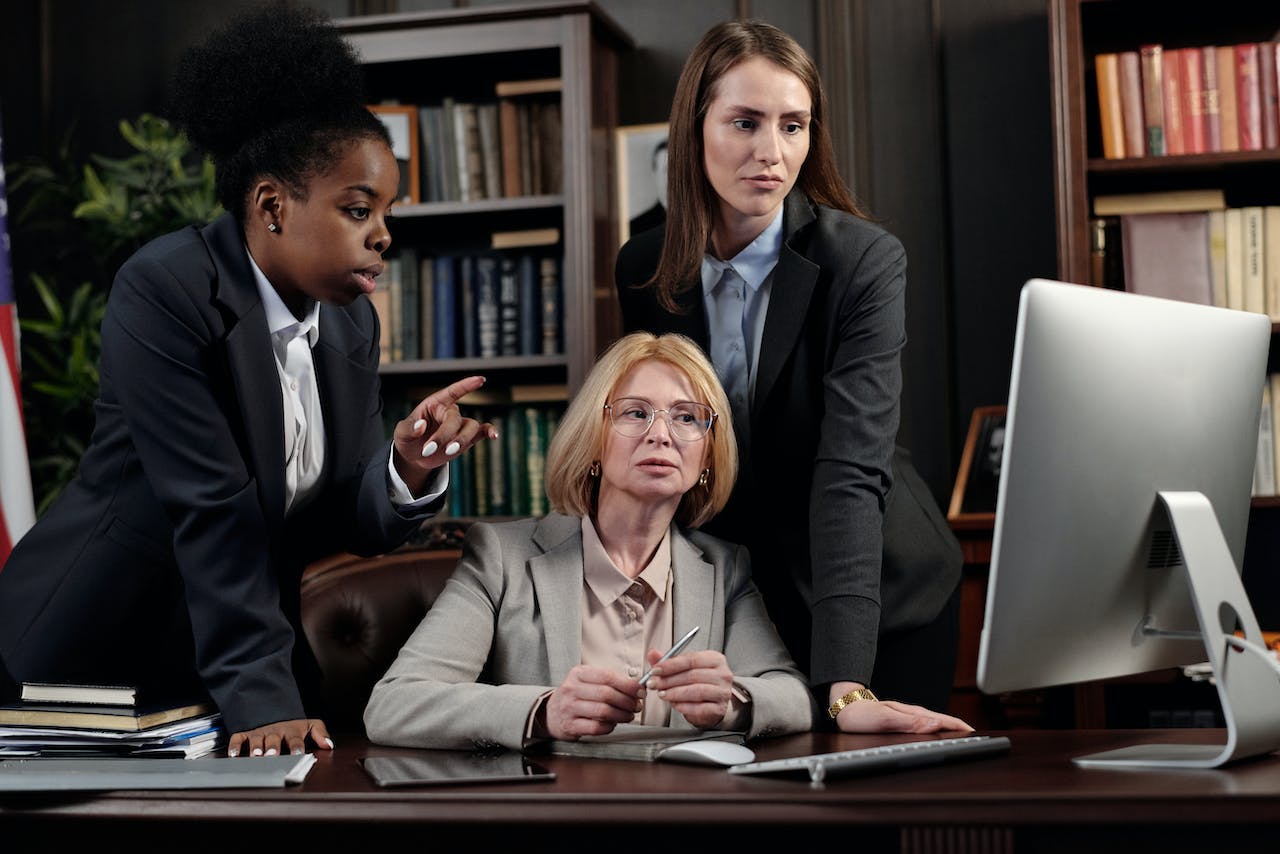At its core, a fact finding hearing is a crucial step in the resolution of various disputes, ranging from employment issues to family law matters. It serves as a pivotal moment where the involved parties present evidence and testimony to establish the facts of a case before a decision-maker, such as a judge or an arbitrator.
The importance of these hearings cannot be overstated. They are the foundation upon which legal and administrative decisions are built, determining the outcome of cases that can significantly impact people’s lives. Whether it’s resolving child custody disputes, addressing workplace grievances, or confronting allegations of misconduct, the thorough and impartial examination of facts in these hearings is essential for fair and just outcomes.
However, for many, the process of a fact finding hearing remains shrouded in mystery and complexity. This lack of understanding can be a significant barrier, especially for those who find themselves unexpectedly involved in such proceedings. Navigating the intricacies of these hearings, from understanding how to present evidence to grasping the potential costs involved, can be daunting without the right information.
Recognising this gap, this article aims to demystify the concept of fact finding hearings, providing a clear, comprehensive guide that equips citizens with the knowledge they need to navigate these proceedings confidently. Whether you’re looking to understand how to win a fact finding hearing, the costs associated with it, or strategies to counter false allegations, this article seeks to address your concerns and prepare you for what lies ahead.

Understanding Fact Finding Hearings
What Is a Fact Finding Hearing?
A fact finding hearing is a legal proceeding where the facts relevant to a case are examined and established. Unlike a full trial, the primary objective here is not to immediately reach a verdict or a decision, but to thoroughly explore and verify the facts that are central to the dispute.
During these hearings, evidence is presented, witnesses may be called, and testimonies are heard, all under the scrutiny of a judge, arbitrator, or administrative panel. The focus is squarely on uncovering the truth, separating fact from fiction, and laying a solid foundation for any subsequent legal decisions or actions.
Role in the Legal System
In the legal system, fact finding hearings play a critical role. They serve as an essential preliminary step in many judicial and administrative processes. By meticulously establishing the facts, these hearings ensure that decisions are made on a sound and factual basis, thereby upholding the principles of justice and fairness. This process helps prevent miscarriages of justice where decisions might otherwise be made on incomplete or incorrect information.
Contexts of Use
Fact finding hearings are utilised in a variety of legal and administrative scenarios, including but not limited to:
- Family Law: In family law, such hearings are pivotal, especially in cases involving child custody, divorce, or domestic abuse allegations. Here, the hearings focus on gathering accurate information to protect the interests and well-being of children and vulnerable parties.
- Employment Disputes: Fact finding hearings are common in resolving employment-related issues, such as unfair dismissal claims, discrimination allegations, or workplace harassment. These hearings aim to uncover the truth behind such claims, ensuring that any employment decisions are fair and justifiable.
- Civil Litigation: In civil cases, these hearings might be used to ascertain facts before a trial. They help in clarifying issues, thus potentially leading to settlements or more focused trials.
- Criminal Cases: Although less common in criminal law, fact finding hearings can be used in specific situations, like determining the admissibility of certain evidence before a trial.
- Administrative Hearings: These hearings are frequently used in administrative law, for issues like disputes over government benefits, licensing, or regulatory compliance.
By understanding the nature and scope of fact finding hearings, individuals facing such proceedings can better prepare and engage more effectively in the process. This understanding is crucial, not just for those directly involved, but also for anyone interested in the workings of the legal and administrative justice systems.

How to Prepare for a Fact Finding Hearing
Initial Steps upon Notification
When you receive notification of a fact finding hearing in the UK, it’s essential to take immediate and organised action. First, carefully review the details provided in the notice, including the date, time, and location of the hearing, as well as the specific matters to be addressed. It’s crucial to understand the nature of the allegations or issues at stake.
Gathering and Organising Relevant Evidence
Evidence is the cornerstone of your case in a fact finding hearing. Begin by collecting all relevant documents, such as emails, contracts, text messages, or any other correspondence that pertains to the case. Organise these documents chronologically and create a clear, concise summary of each piece of evidence. If there are physical evidences, such as photographs or items, ensure they are safely stored and accessible.
In addition to documentary evidence, consider any potential witnesses who could support your case. Witnesses might provide testimony regarding their direct experiences or expert opinions if they have professional qualifications related to the matter at hand.
The Role of Legal Representation
While not mandatory, having legal representation in a fact finding hearing can be highly beneficial, particularly in complex cases. A solicitor or barrister can provide:
- Expertise: They bring knowledge of legal procedures and can advise on the best course of action.
- Representation: A legal professional can represent you at the hearing, presenting your case and arguing on your behalf.
- Support: They offer emotional support and reassurance, helping you navigate through the stress of legal proceedings.
If you decide to seek legal advice, do so promptly, allowing your legal team ample time to prepare. There are also options for legal aid in the UK, depending on your financial situation and the nature of your case.
Preparing for a fact finding hearing in the UK requires diligence, organisation, and an understanding of the legal processes involved. By taking these steps, you can approach your hearing with greater confidence and a clearer understanding of how to present your case effectively.

How to Win a Fact Finding Hearing
Strategies for Success
Winning a fact finding hearing in the UK hinges on several key strategies, each aimed at convincingly presenting your side of the story and discrediting any false allegations.
- Presenting Evidence: Your evidence should be relevant, well-organised, and presented in a manner that is easily understandable. Ensure that all documents are legible, dated, and properly labelled. Digital evidence should be presented in a format that can be easily accessed and reviewed by the panel or judge.
- Witness Preparation: If you plan to call witnesses, prepare them thoroughly. They should be aware of the hearing’s format and the types of questions they might be asked. Encourage them to speak clearly, stick to the facts, and remain calm.
- Effective Communication: When speaking at the hearing, be clear, concise, and articulate. Avoid using overly technical language or jargon unless necessary. Your aim should be to make your points understandably and persuasively.
Understanding Criteria for Assessing Facts
Judges and panels in UK hearings use specific criteria to assess the facts presented:
- Relevance: The information must pertain directly to the case at hand.
- Credibility: Evidence and testimony must be believable and trustworthy.
- Consistency: The facts should be consistent both within your presentation and with any established evidence.
- Corroboration: Where possible, evidence should be supported by independent sources.
Importance of Credibility and Consistency
Your credibility is a critical factor in the success of your case. Always tell the truth and ensure your statements align with the evidence you present. Contradictions or inconsistencies in your testimony can significantly undermine your position. It’s equally important to maintain consistency throughout the hearing, as changing your story can raise doubts about your reliability.
Handling Cross-Examinations and Opposing Arguments
During the hearing, you may be cross-examined by the opposing side or asked challenging questions by the judge or panel. Here are some tips for handling these situations:
- Stay Calm: Maintain composure, even if the questions are provocative or challenging.
- Listen Carefully: Make sure you understand each question before answering. If a question is unclear, it’s acceptable to ask for clarification.
- Be Concise: Answer questions directly and succinctly. Avoid offering more information than what is asked.
- Stick to the Facts: Focus on factual information rather than opinions or assumptions.
In responding to opposing arguments, acknowledge them respectfully but be prepared to counter them with factual evidence and logical reasoning.
Winning a fact finding hearing in the UK requires a well-prepared and strategic approach. By focusing on the credibility and relevance of your evidence, preparing thoroughly for cross-examinations, and communicating effectively, you can significantly enhance your chances of a favourable outcome.

Navigating Fact Finding Hearing False Allegations
Facing fact finding hearing false allegations can be a distressing and challenging experience. In the UK, where the integrity of the legal process is highly regarded, there are specific strategies and legal recourses available to effectively address and counter such claims.
Addressing and Refuting False Allegations
- Gather Contradictory Evidence: Collect any evidence that directly contradicts the false allegations. This could include documents, electronic communications, or any other form of proof that undermines the credibility of the allegations.
- Prepare a Detailed Timeline: Construct a comprehensive timeline of events that refutes the false claims. This timeline should be supported by evidence and can be crucial in demonstrating inconsistencies in the allegations.
- Legal Advice: Consult with a solicitor or legal advisor who specialises in the area of law relevant to your case. They can provide guidance on the best approach to counter the false allegations and ensure that your response adheres to legal standards.
Role of Evidence and Credible Witnesses
- Strong Evidence: Present strong, irrefutable evidence that counters the false allegations. The more concrete your evidence, the more effective it will be in disproving the claims against you.
- Credible Witnesses: If applicable, bring forward witnesses who can corroborate your version of events and discredit the false allegations. Ensure that these witnesses are reliable, have no obvious bias, and can provide clear, factual testimony.
Legal Recourse for Victims of False Allegations
- Defamation Claims: If the false allegations have damaged your reputation, you may have grounds for a defamation claim. In the UK, defamation laws are designed to protect individuals from false statements that harm their reputation.
- Malicious Prosecution or Abuse of Process: If the allegations are proven to be made with malicious intent, you may have a case for malicious prosecution or abuse of process. These are serious claims and require substantial evidence.
- Compensation for Wrongful Allegations: In some cases, you may be eligible for compensation if you can demonstrate that the false allegations have caused you significant harm or loss.
- Reporting to Professional Bodies: If the false allegations have been made by a professional, such as a solicitor or a healthcare worker, you can report the matter to their respective regulatory body.
Navigating through false allegations in a UK fact finding hearing demands a robust and evidence-based approach. It’s crucial to disprove the allegations with clear, credible evidence and, where necessary, seek appropriate legal recourse to address any harm caused by such claims.

How Much Does a Fact Finding Hearing Cost?
Understanding the potential costs associated with a fact finding hearing in the UK is essential for anyone preparing to engage in this legal process. The expenses can vary significantly based on several factors, and being aware of these can help in effective financial planning.
Overview of Potential Costs
- Legal Representation: Hiring a solicitor or barrister can constitute a significant portion of the costs. Fees vary widely depending on the experience of the legal professional and the geographical location.
- Court Fees: There may be fees associated with filing documents or for the hearing itself, depending on the nature of the case.
- Expert Witnesses: If your case requires the testimony of expert witnesses, their fees will add to the overall cost. These fees depend on the expertise required and the length of involvement.
- Administrative Costs: Other costs can include administrative expenses like photocopying, postage, and travel expenses to and from the hearing.
Factors Influencing the Cost
- Complexity of the Case: More complex cases require more preparation time and potentially longer hearings, which can increase legal fees.
- Duration of the Hearing: Longer hearings will result in higher costs, particularly in terms of legal representation and administrative expenses.
- Level of Legal Representation Required: The choice of a high-profile solicitor or barrister, or a legal team from a large, prestigious firm, will generally incur greater costs.
Managing Costs
- Budgeting: Early on, ask for an estimate of the costs from your legal representative and plan your budget accordingly.
- Legal Aid: Check if you are eligible for legal aid. The Legal Aid Agency in the UK provides support for those who cannot afford legal representation, depending on the nature of the case and your financial circumstances.
- Fixed Fee Arrangements: Some solicitors offer fixed-fee arrangements for certain types of hearings, which can help in managing costs.
- Comparing Costs: It’s advisable to compare fees from different legal professionals or firms before making a decision.
- Pro Bono Assistance: In some cases, legal professionals may offer pro bono (free) assistance, especially if the case is of particular public interest or if you’re facing significant financial hardship.
Seeking Financial Assistance
- Legal Aid: Apply for legal aid through the Gov.uk website or seek advice from your legal representative about your eligibility.
- Charitable Organisations: Some charities offer support for specific types of cases (such as family law matters) and can provide financial assistance or free legal advice.
- Payment Plans: Discuss with your solicitor the possibility of a payment plan that allows you to spread the cost over time.
Navigating the costs of a fact finding hearing in the UK requires careful planning and an understanding of the various expenses involved. By considering the factors that influence costs and exploring options for financial support and assistance, you can better manage the financial aspect of your hearing.

Conclusion
In summary, navigating a fact finding hearing in the UK requires a thorough understanding of the process, from preparing and presenting your case effectively to managing the complexities of false allegations and bearing the associated costs.
This guide has aimed to equip you with essential knowledge and strategies, whether you’re countering fact finding hearing false allegations, understanding the significance of credible evidence, or seeking legal representation. Remember, the key to a successful outcome often lies in meticulous preparation, a clear understanding of the legal criteria, and the ability to present a coherent and factual narrative. With the right approach and resources, you can approach these hearings with confidence, ensuring that your voice is heard and your rights are upheld in the pursuit of justice.


